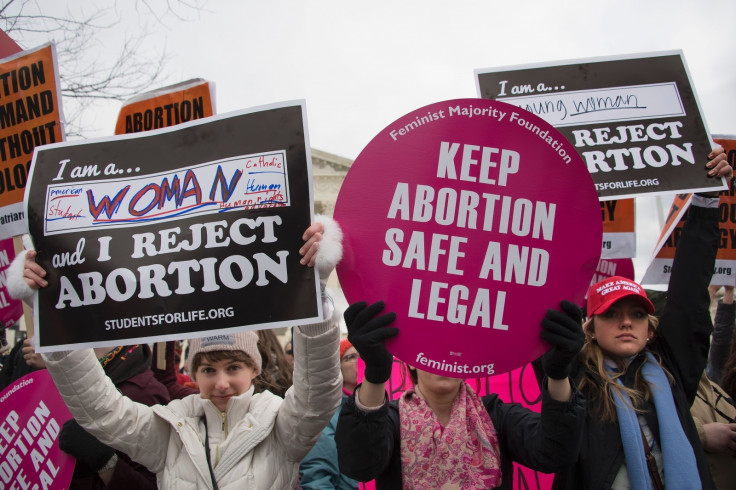Fetuses can't feel pain after 20 weeks - so why did the US almost base a law on that idea?
Around 1% of abortions are completed after 20 weeks in the US.

Nearly half a century after the landmark Roe vs Wade case that legalised abortion in the US, the Senate blocked a bill on Monday (29 January) that would have banned terminations after 20 weeks of pregnancy.
Previously passing through the House of Representatives in late 2017, the provocatively named Pain-Capable Unborn Child Protection Act claimed "there is substantial medical evidence that an unborn child is capable of experiencing pain at least by 20 weeks after fertilisation, if not earlier."
If voted through, the bill would have stopped women from seeking terminations unless they were victims of rape, incest or if the pregnancy endangered her life. Doctors performing abortions after the 20-week mark could have been handed five-year prison sentences.
But scientific evidence shows that fetuses do not feel pain until the third trimester. A 2010 report by the UK's Royal College of Obstetricians and Gynaecologists (RCOG) on foetal awareness stated that before the 24th week of pregnancy, the fetus does not have the necessary neurological connections to experience pain.
"Even after this gestation, it is highly unlikely the fetus can feel pain as evidence suggests it remains in a sedated, continuous sleep-like state," Clare Murphy, a spokesperson for the reproductive rights charity BPAS, told IBTimes UK. "As a result, the RCOG concluded that the use of analgesia provides no clear benefit to the fetus during operations in utero.
"For US legislators to use scientifically unfounded claims about foetal pain as justification for this bill is completely disingenuous. This is not about compassion or care – this is about restricting women's rights," she added.
"The woman's need for abortion after 20 weeks is something that the doctor can assess and many of these are on the grounds of severe foetal abnormality, often fatal," added Wendy Savage, co-chair of Doctors for Choice UK and Honorary Professor at Middlesex University School of Health and Education told IBTimes UK. "Legislation in this area is unnecessary and I believe that abortion should be treated like any other medical procedure and not be a matter for the criminal law,"
"The anti-abortion lobby is forever looking at ways to restrict women's right to safe legal abortion. They do not base their objections on scientific evidence but emotive arguments they feel will resonate with the public."
And as almost 99% of abortions in the US happen before 21 weeks, according to a report by the Centers for Disease Control and Prevention, why was the bill put forward in the first place? Any procedures carried out after this point are generally due to foetal abnormalities that pose a risk to a woman's health.
It is believed that the bill was used by Republicans to hurt the re-election prospects of Democrats in marginal seats.
Marge Berer, International Coordinator, London, of the International Campaign for Women's Rights to Safe Abortion, told IBTimes UK added that such campaigns are a political tactic "to tie up the time of anyone who supports women's access to safe abortion in opposing their proposed laws."
"Secondly, the anti-abortion movement today in the USA knows full well that a large majority in the country supports women's access to safe and legal abortion. This fact has not changed for many years.
"Hence, opposing abortion effectively has become problematic for them. For reasons best known to themselves, they have decided to become a nuisance factor at a high level, including pushing bills at state and federal level which are based on 'junk science'.
"Some examples of 'junk science' on abortion are the claim that it causes breast cancer (it does not), that a fetus is a person (it is not, it is part of a woman's body during gestation and has no independent life), and that a fetus can feel pain in the same way as a person can."







